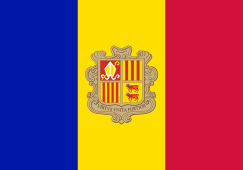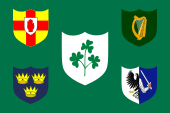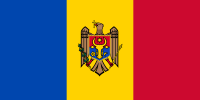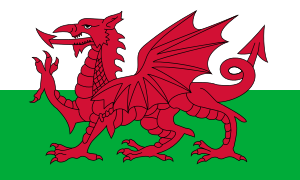Rugby Europe
 | |
| Formation | 1934 |
|---|---|
| Type | Sports federation |
| Headquarters | Paris, France |
| Coordinates | 48°52′46″N 2°19′41″E / 48.87944°N 2.32806°E |
Membership | 49 unions |
President | Octavian Morariu |
| Website | rugbyeurope.eu |
Rugby Europe is the administrative body for rugby union in Europe. It was formed in 1999 to promote, develop, organise and administer the game of rugby in Europe under the authority of World Rugby (the world governing body of rugby union).
The predecessor to Rugby Europe was the Fédération Internationale de Rugby Amateur (FIRA). FIRA was formed in 1934 to promote, develop, organise and administer the game of rugby union in Europe outside the authority of the International Rugby Football Board (as World Rugby was then called), and quickly came to spread outside the continent. FIRA agreed to come under the auspices of World Rugby in the 1990s, changed its name and returned to being a European body. In 2014 it changed its name from Fédération Internationale de Rugby Amateur – Association Européenne de Rugby (FIRA-AER) to Rugby Europe as part of a rebranding strategy.
International competitions
| Nation | Rank (Hi–Low) |
|---|---|
| England | 1–8 |
| France | 2–9 |
| Ireland | 2–9 |
| Wales | 2–10 |
| Scotland | 6–12 |
| Italy | 8–15 |
The highest level of rugby competition played among European countries is the Six Nations Championship, contested every year in February and March, by England, Wales, Scotland, Ireland, France, and Italy—all countries routinely ranked in the Top 15 in the world. The tournament began in 1883, and is the oldest international rugby tournament. The tournament has been known as the Six Nations Championship since 2000, when Italy joined; it had previously been known as the Five Nations. There is no promotion or relegation, and since 2000, no country has entered or left the Six Nations.
The next highest level of international rugby played by European countries is the European Nations Cup Division 1A, which is contested by six countries—Georgia, Romania, Russia, Spain, Portugal, and Germany—all of which are ranked in the Top 30 in the world. Of these six countries, all but Germany have been in Division 1A since 2007, and all but Germany have played in a Rugby World Cup. There is promotion and relegation between the ENC Division 1A and lower divisions. In total, the ENC has seven divisions, with a system of promotion and relegation linking all seven.
Other international competitions
Youth
|
Professional competitions
The following table shows the professional rugby union competitions in various European countries.
| League | Country | Div. | Began* | Teams | Games | Total attendance | Average attendance | Ref. |
|---|---|---|---|---|---|---|---|---|
| Top 14 | | 1 | 1892 | 14 | 182 | 2,414,951 | 13,269 | [1] |
| Premiership | | 1 | 1987 | 12 | 135 | 1,697,177 | 12,925 | [2] |
| Pro12 | | 1 | 2001 | 12 | 135 | 1,052,795 | 7,856* | [3] |
| Rugby Pro D2 | | 2 | 2000 | 16 | 243 | 1,025,910 | 4,222 | |
| Championship | | 2 | 1987 | 12 | 132 | 287,262 | 2,176 | [4] |
Notes:
- Average attendances vary significantly by country within the Pro12—Ireland (12,347), Wales (8,136), Scotland (4,570), and Italy (2,744).
- The English Premiership and French Top 14 both turned professional in 1996. Two Italian teams joined the Celtic League (since renamed Pro12) in 2010.
- England's second-level Championship became fully professional in 2009 after having been semi-professional.
Member Unions
Rugby Europe has 48 member unions and 1 union under suspension, as of January 2015.[5][6] Not all European member unions are members of World Rugby (WR).[7] Rugby Europe's members are listed below, with the year each union joined World Rugby shown in brackets. World Rugby associates are shown in italics.
There are 39 World Rugby members
-
 Andorra (1991)
Andorra (1991) -
 Austria (1992)
Austria (1992) -
.svg.png) Belgium (1988)
Belgium (1988) -
 Bosnia & Herzegovina (1996)
Bosnia & Herzegovina (1996) -
 Bulgaria (1992)
Bulgaria (1992) -
 Croatia (1992)
Croatia (1992) -
 Cyprus (2014)
Cyprus (2014) -
 Czech Republic (1988)
Czech Republic (1988) -
 Denmark (1988)
Denmark (1988) -
 England (1890)
England (1890) -
 Finland (2001)
Finland (2001) -
 France (1978)
France (1978) -
 Greece (2009)
Greece (2009) -
 Georgia (1992)
Georgia (1992) -
 Germany (1988)
Germany (1988) -
 Hungary (1991)
Hungary (1991) -
 Ireland (1886)
Ireland (1886) -
 Israel (1988)
Israel (1988) -
 Italy (1987)
Italy (1987) -
 Latvia (1991)
Latvia (1991) -
 Lithuania (1992)
Lithuania (1992) -
 Luxembourg (1991)
Luxembourg (1991) -
 Malta (2000)
Malta (2000) -
 Moldova (1994)
Moldova (1994) -
 Monaco (1996)
Monaco (1996) -
 Netherlands (1988)
Netherlands (1988) -
 Norway (1993)
Norway (1993) -
 Poland (1988)
Poland (1988) -
 Portugal (1988)
Portugal (1988) -
 Romania (1987)
Romania (1987) -
 Russia (1990)
Russia (1990) -
 Scotland (1886)
Scotland (1886) -
 Serbia (1988)
Serbia (1988) -
 Slovenia (1996)
Slovenia (1996) -
 Spain (1988)
Spain (1988) -
 Sweden (1988)
Sweden (1988) -
 Switzerland (1988)
Switzerland (1988) -
 Ukraine (1992)
Ukraine (1992) -
 Wales (1886)
Wales (1886)
There are 8 members of Rugby Europe, that are not affiliated with World Rugby:
There are 5 European nations that are not affiliated by world rugby or rugby europe and are currently applying/reapplying for membership:
Notes:
* Denotes associate membership date.
History
FIRA (1934–1999)
In 1931, the French Rugby Federation (FFR) was suspended from playing against the other IRFB nations, because the sport's authorities had suspected for many years that the (FFR) was allowing the abuse of the rules on amateurism. As a result, Fédération Internationale de Rugby Amateur (FIRA) was founded in 1934. It was designed to organise rugby union outside the authority of the International Rugby Football Board (as it was known at the time). The founder members were Italy, France, Spain, Belgium, Portugal, Catalonia, Romania and Germany. In 1941 the Spanish dictator Francisco Franco forcibly merged Catalonia's team into the Spanish rugby team. Nowadays the Catalan Federation is trying unsuccessfully to reverse this decision, claiming the historical rights as a founder member.
In 1965, FIRA inaugurated the FIRA Nation's Cup, and in 1974 the FIRA Championship, later renamed the European Nations Cup (ENC). The ENC provided international competition for European countries outside the Five Nations. The ENC was played in three divisions, iconcluding virtually every country in Continental Europe. The ENC later expanded its horizons, taking in Morocco, Tunisia and other non-European countries. The ENC first division competition was won most often by France, but Romania won it five times, Italy once, in its last edition in 1995–1997, and the Soviet Union won it once. France and Italy no longer play in the ENC, as both countries now play in the Six Nations Champsionship.
FIRA–A.E.R. (1999–2014)
In 1990s the FIRA recognised the IRB as the governing body of rugby union worldwide and after negotiations with the IRB, it agreed to integrate itself within the organisation. In 1999 it changed its name to "FIRA – Association of European Rugby" (FIRA–AER), to promote and rule over rugby union in the European area and to run the junior world championship. FIRA-AER organised both the under-19 and under-21 world championships until IRB folded them into the competitions now known as the World Rugby Under 20 Championship and World Rugby Under 20 Trophy in 2008.
Rugby Europe (2014 – present)
In June 2014, during the annual convention of FIRA-AER in Split, it was decided to rename the organisation to Rugby Europe to provide it with a shorter, more recognisable name.[8]
References
- ↑ "Statistiques générales, saison 2011–2012" (in French). Ligue nationale de rugby. Retrieved 2012-11-19. Select "Affluences" (attendance) tab from the clickable banner. Attendance statistics are for the regular season only; they do not include the five playoff games.
- ↑ "Aviva Premiership Rugby 11/12 / Attendance". Premiership Rugby Limited. 29 May 2012. Retrieved 30 May 2012.
- ↑ "Match Centre : RaboDirect PRO12 Fixtures & Results, 2011–2012". PRO12. Retrieved 2012-11-19. The attendance for one match, Ulster–Leinster on 20 April 2012, was not reported by the league. BBC Sport reported the attendance for this match at 10,500, which was used in the calculations here.
- ↑ "Rugby Stats | Championship 09/10 |". Statbunker.com. Retrieved 2011-10-20.
- ↑ "Unions Members". Rugby Europe. 2015. Retrieved 28 January 2015.
- 1 2 "World Rugby gives Cyprus warm welcome but Armenia and Greece the cold shoulder". ASOIF. 21 November 2014. Retrieved 2016-10-20.
- ↑ "Handbook" (PDF). World Rugby. 2014. pp. 16–10. Retrieved 28 January 2015.
- ↑ FIRA-AER Becomes RUGBY EUROPE FIRA-AER website, published: 20 June 2014, accessed: 25 June 2014